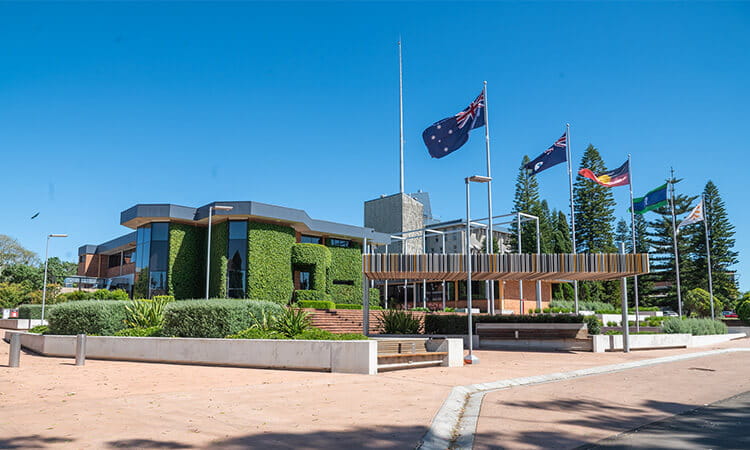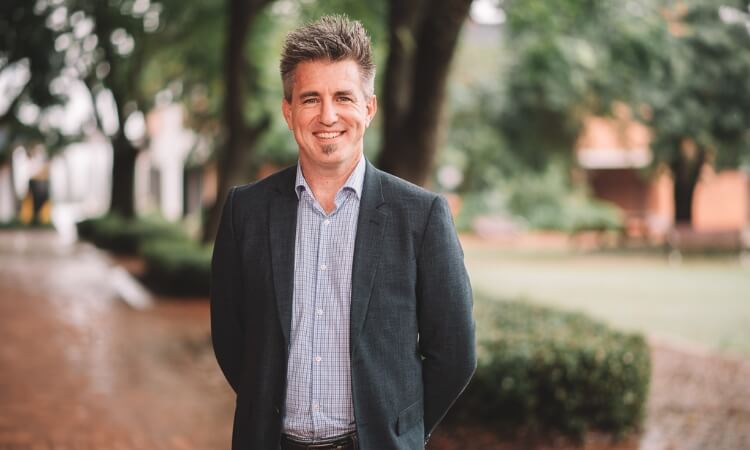Many of the social and environmental challenges currently facing Australia are also impacting much of the world. Recovery from the global pandemic, managing increasing climatic uncertainty, the major challenge of decarbonisation of the economy, and food and water security concerns are just a few of the urgent priorities affecting communities across the world.
Over the past five years, the University of Southern Queensland (UniSQ) has delivered world-class research, a broad education program and meaningful engagement with communities, both domestically and internationally. The University punches above its weight, and was ranked 1st in Australia, and 8th globally, in the 2022 Leiden CWTS Rankings for the proportion of top 1% cited papers published by UniSQ authors.
Focused across four targeted flagship areas, UniSQ’s research expertise is well positioned to enable a targeted response to address these major challenges.
Space and Defence
UniSQ is a leading institution in the development of Australia’s sovereign space capability. Recently announced as one of Australia’s Trailblazer universities, UniSQ is working in partnership with the Australian National University, the University of South Australia and more than 15 industry partners to lead the Innovative Launch, Automation, Novel Materials, Communications and Hypersonics (iLAuNCH) Program. iLAuNCH will deliver the industrial and R&D ecosystem that is essential to ensuring that emerging technology manufacturers can capitalise on commercial opportunities, improve Australia’s skills in the space sector, provide new jobs and boost the economy.
The University is home to world-class infrastructure and equipment, including the Mount Kent Astronomical Observatory, Queensland’s only professional research and teaching observatory for astronomical space sciences. The observatory is providing the key support role from the Southern Hemisphere for NASA’s Transiting Exoplanet Survey Satellite (TESS) mission, which uses transit photometry to detect exoplanets near our Solar system.
Regional Development
UniSQ’s Institute for Resilient Regions leads the University’s Regional Development Flagship by focusing on social science research supporting regional communities to embrace change, adapt and innovate, all whilst maintaining their identity. The Institute is leading the Southern Queensland and Northern NSW Drought Resilience Adoption and Innovation Hub (SQNNSW Innovation Hub) under the Australian Government’s Future Drought Fund program, drawing together the University’s strength in Agriculture, Climate Science and Regional Economic Development to address one of the long-term threats to Australia’s economic prosperity – drought!
Agriculture
Complimenting the SQNNSW Innovation Hub, UniSQ’s Centre for Applied Climate Sciences’ core business areas cover climate risk management and innovative insurance systems for government, agribusiness, and smallholder farmers throughout most of Southeast Asia, as a key collaborator in the International Climate Initiative supported by the German Government. The Centre is heavily engaged in major international drought and agricultural climate research and management programs within the United Nations’ World Meteorological Organisation and the associated Integrated Drought Management Program.
As an internationally recognised leader in improving the profitability, environmental sustainability and socio-economic wellbeing of rural industries and their natural resource base, UniSQ’s Centre for Agricultural Engineering has enabled Australian farmers to be among the first in the world to benefit from innovative technologies that are shaping the farms of the future. Through a longstanding partnership with American agricultural machinery manufacturers John Deere, the Centre has developed and commercialised machine vision and remote operating systems such as automated irrigation systems and driverless tractors that are revolutionising modern farming.
Health
Researchers from UniSQ’s Centre for Health Research have received $5 million in funding from the Medical Research Future Fund to develop interventions that improve access to evidence-based psychosocial and mental health care for vulnerable populations, such as children and people in geographically isolated regions.
UniSQ’s Professor Jeff Dunn AO was voted President-Elect of the Union for International Cancer Control (UICC). This is a prestigious appointment to the world’s top cancer control organisation and recognises Professor Dunn’s extensive career and dedication to working towards eliminating cancer. As Chair and Program Director of UniSQ’s Centre for Health Research’s Social and Behavioural Science team, Professor Dunn is tackling a globally significant health issue through the application of evidence-based strategies to improve the quality of life for people who have been diagnosed with cancer, particularly in rural or regional communities.
UniSQ will continue to build capacity in industry, produce the next generation of future research leaders and help global communities to embrace change and alleviate the uncertainty of the future.



